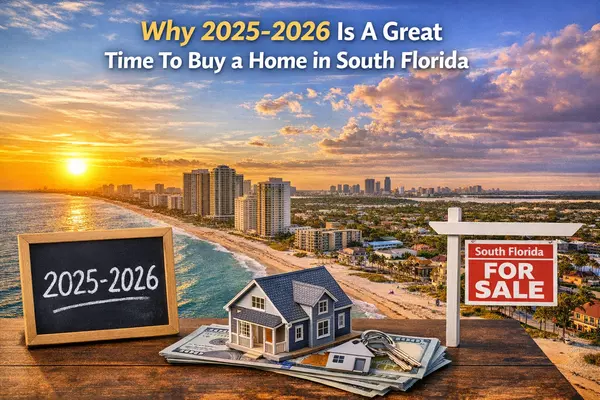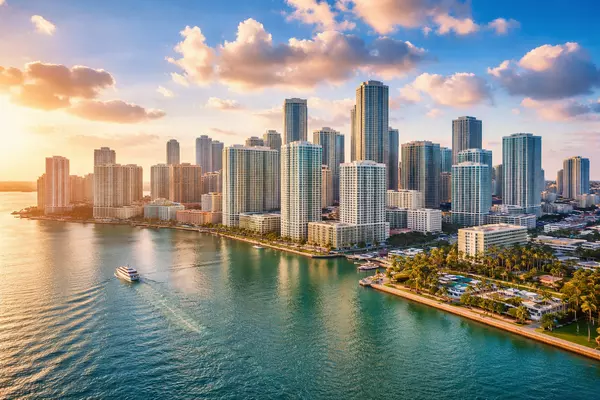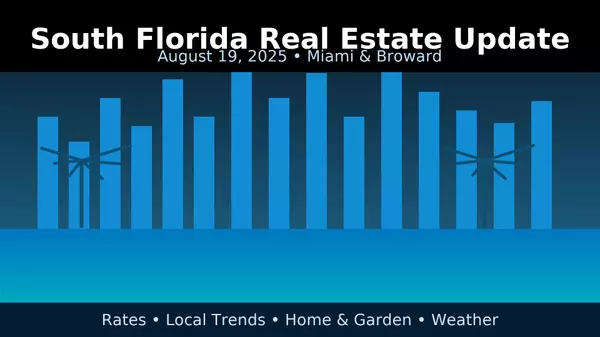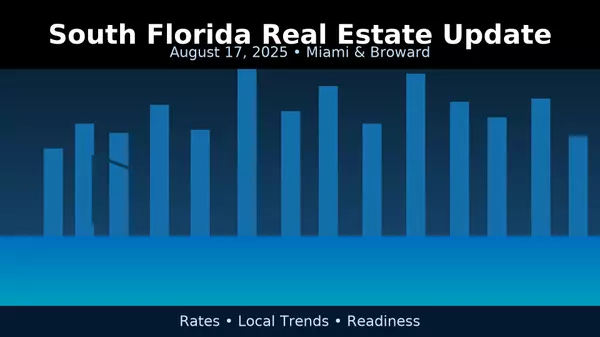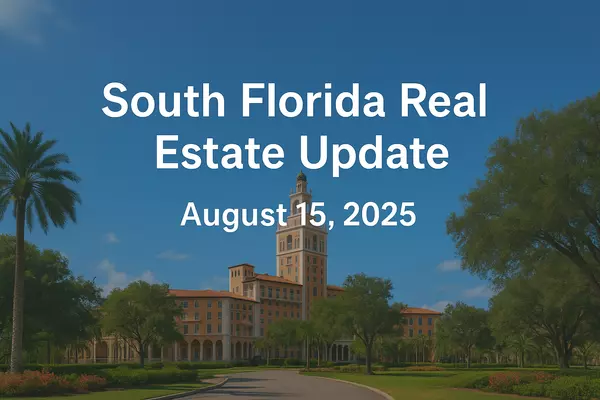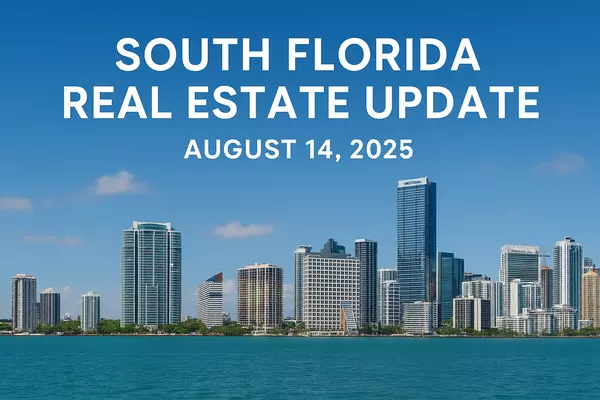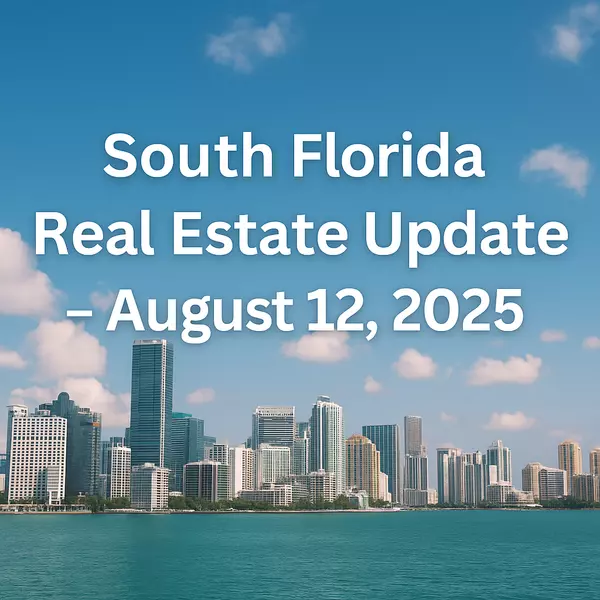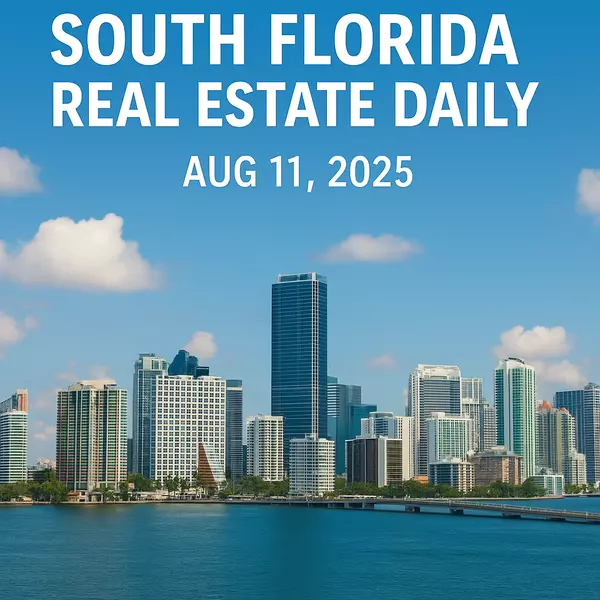Home-Field Advantage: Miami Sports & Its Thriving Real Estate Market
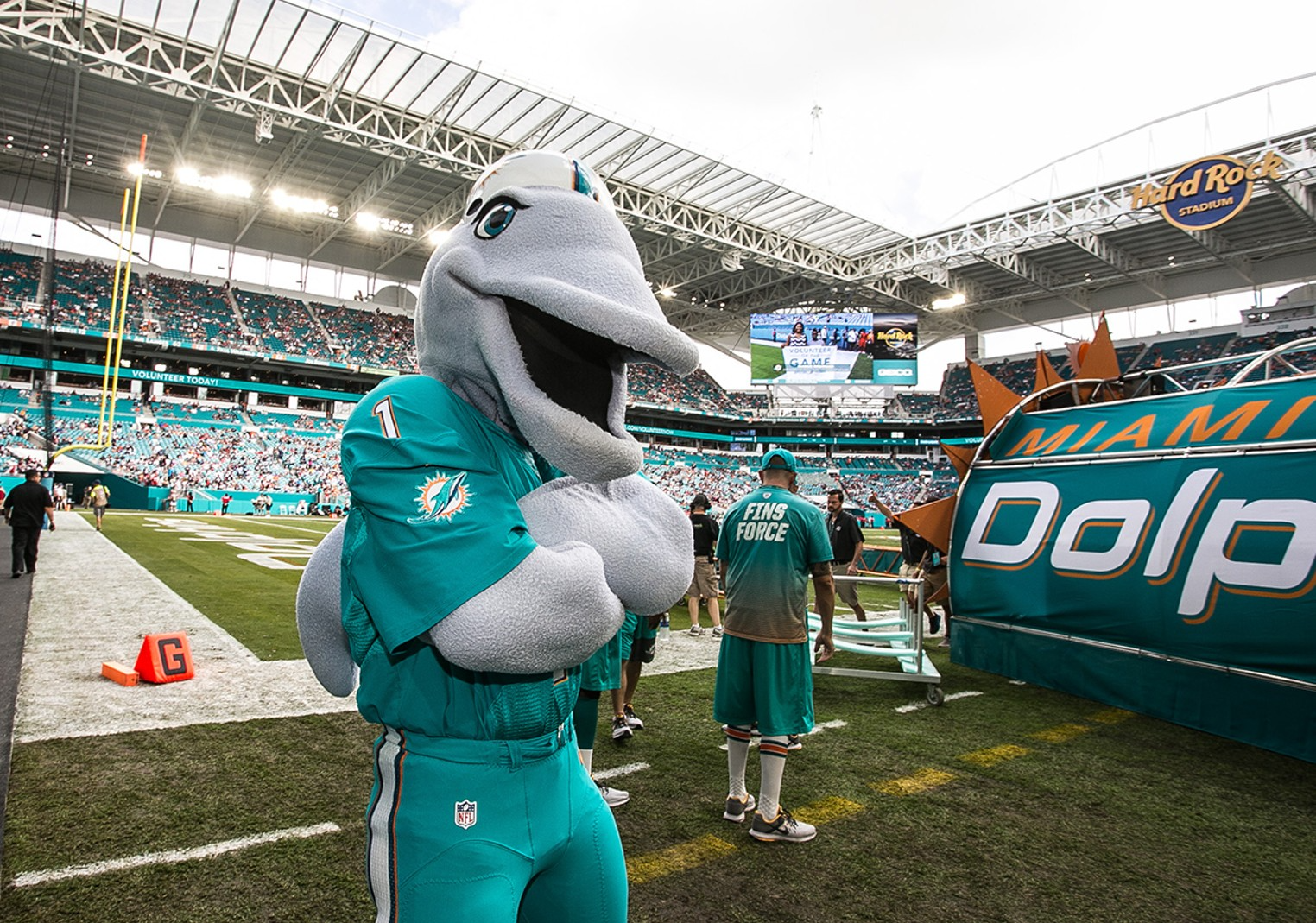
Few cities on the American landscape exemplify the dynamic interplay of sports and real estate as Miami does. The Magic City's meteoric rise as a global destination has been fueled, in part, by the vibrant local sports scene. Miami's sports franchises – the Heat in the NBA, Lionel Messi's anticipated arrival in soccer, and the Dolphins' Super Bowl aspirations in the NFL – have all played a pivotal role in invigorating the local real estate market, making it a desirable place to call home for many.
The Miami Heat
The Miami Heat, since its inception in 1988, has grown from a fledgling NBA team into a formidable sports powerhouse, securing three NBA championships in its history. But the team's influence extends well beyond the basketball court. The Heat's popularity and success have had far-reaching implications for the city, particularly its real estate market.
One of the defining eras for the Miami Heat – and, by extension, Miami itself – was the arrival of the "Big Three": LeBron James, Dwyane Wade, and Chris Bosh in 2010. This period of significant success not only put Miami Heat on the global map but also brought a higher level of visibility to the city of Miami. The worldwide coverage that the team received meant that the eyes of sports fans globally were on Miami, leading to an increase in tourism and creating a wave of interest in the city.
With a higher volume of visitors, the local economy experienced a surge. Businesses across various sectors, from hospitality to retail, saw increased revenue as fans flooded the city to watch games, visit local attractions, and experience the city's vibrant nightlife. This influx of tourists created a knock-on effect on the real estate market. Demand for short-term rentals grew, particularly in areas close to the American Airlines Arena. Over time, these areas became hotspots, attracting not only tourists but also prospective homeowners and real estate investors, drawn to the liveliness and promise of economic growth.
Neighborhoods surrounding the Arena experienced an uptick in their appeal. Areas such as Downtown Miami, Brickell, and Edgewater, with their close proximity to the Arena and sweeping city views, saw a surge in property values. This growth was further supported by a mix of urban amenities, including upscale restaurants, boutiques, cultural centers, and vibrant nightlife, all contributing to an attractive urban lifestyle for potential homeowners.
Beyond the immediate vicinity of the Arena, the Heat's influence on Miami's real estate market was also noticeable. The team's global success enhanced Miami's profile as a desirable city to live and invest in, which led to an increased demand for property across the city. From luxury condos in Miami Beach to single-family homes in neighborhoods like Coral Gables and Coconut Grove, the entire real estate market felt the 'heat'.
The effect of the Miami Heat's success on the city's real estate market offers a clear example of how sports can indirectly shape a city's landscape. The blend of sports, entertainment, and urban lifestyle created a unique synergy that has contributed to Miami's reputation as a globally recognized city. The Miami Heat, therefore, remains more than just a basketball team; it is a critical player in the city's ongoing growth and dynamism.
As Miami continues to evolve, the Heat will undoubtedly remain an integral part of the city's identity. With the team's commitment to excellence and Miami's commitment to growth and development, the real estate market will continue to feel the positive effects. The city's skyline, marked by gleaming new skyscrapers and historic homes alike, serves as a testament to this lasting impact, reminding us of the profound ways that sports and real estate can intersect.
Lionel Messi's Move and Miami's Global Appeal
Lionel Messi is a household name in soccer, boasting an impressive career that has seen him claim multiple Ballon d'Or titles and establish himself as a global superstar. The Argentinian forward has shown interest in Miami, a city known for its multicultural vibrancy and appeal to celebrities. Rumors of Messi potentially ending his illustrious career in Miami's Major League Soccer club, Inter Miami CF, have swirled. Although these remain unconfirmed, the prospect has excited local fans and stimulated fascinating conjecture regarding the impact on the city's real estate market.
Any city that Lionel Messi calls home automatically draws global attention, a phenomenon that can significantly impact local real estate. When a figure of Messi's caliber expresses interest in a city, it's akin to an international endorsement of that location's attractiveness and livability. This effect, sometimes referred to as the "Messi Effect," could drive considerable attention and investment toward Miami's real estate market.
The "Messi Effect" could influence the local housing market by elevating the appeal of Miami for international home buyers, particularly those from Latin America. Messi's Argentinian heritage and his vast fan base in Latin American countries can heighten Miami's allure to this demographic. As Latin America's wealthiest and most influential figures consider where to invest in real estate, Messi's association could place Miami at the top of the list, potentially driving up demand and, subsequently, property prices.
Miami has long been a hotspot for international real estate investment, with its diverse culture, prime location, and attractive lifestyle. High-profile Latin American celebrities, including musicians, actors, and sports stars, have been drawn to the city, acquiring real estate and often promoting their love for the city to their followers. Messi's potential move could enhance this appeal, bolstering Miami's image as an internationally acclaimed city to live and invest in.
Speculations of Messi's potential residency also bring neighborhoods like Miami Beach into focus. The area, known for its luxurious waterfront properties, is a popular choice for celebrities seeking privacy and exclusivity. Should Messi choose to buy a property in this or similar high-end neighborhoods, it could create a ripple effect, encouraging other high-net-worth individuals to invest in the same areas, driving property values upwards.
Moreover, Messi's possible affiliation with Inter Miami CF might stimulate growth in neighborhoods surrounding the club's stadium in Fort Lauderdale. Similar to the influence of the Miami Heat on their surrounding areas, Inter Miami CF could have a comparable effect, particularly if Messi were to join the team. Neighborhoods around the stadium could see increased investment and development, providing potential opportunities for both residential and commercial real estate growth.
In conclusion, while Lionel Messi's potential Miami connection is currently speculation, the possible implications for the city's real estate market are intriguing. It underscores the often-underestimated impact of sports and sports figures on local economies and real estate markets. The mere speculation has once again elevated Miami's profile on the world stage, reminding us of the city's enduring appeal and the exciting potential for its real estate market.
The Miami Dolphins: Super Bowl Aspirations and Real Estate Impact
The Miami Dolphins, one of the flagship franchises in the National Football League (NFL), have been integral to Miami's sports culture since their establishment in 1966. With a rich history and dedicated fan base, the Dolphins have significant influence on the city, beyond the realm of sports. This impact extends to Miami's real estate market, particularly when the team is performing well and drawing national attention.
The Dolphins' recent acquisitions, notably the arrival of wide receiver Tyreek Hill and cornerback Jalen Ramsey, have stirred significant excitement among Miami's football fanbase. These high-profile transfers, combined with the promising performances of young quarterback Tua Tagovailoa, have raised hopes for a Super Bowl run this season. Such a successful campaign would invariably put Miami in the spotlight, which could yield interesting implications for the city's real estate market.
Firstly, the star power that players like Tyreek Hill, Jalen Ramsey, and Tua Tagovailoa bring to the Dolphins can boost Miami's appeal to potential home buyers. Similar to the "Messi Effect" in soccer, NFL stars have the potential to elevate the attractiveness of their resident cities. Their investment in local real estate often sets trends in the market, influencing where other high-profile personalities choose to buy homes. This can lead to increased demand and property values in certain neighborhoods.
Additionally, the players' lifestyle choices, including their homes, can shape perceptions of Miami's quality of life. If Tyreek Hill or Jalen Ramsey were to purchase a luxury property in a certain neighborhood, it could enhance that area's reputation as an exclusive, desirable place to live. This could attract further investment, particularly from high-net-worth individuals or property developers.
The Super Bowl aspirations of the Dolphins also generate economic activity and media coverage that could benefit the real estate sector. A Super Bowl run would spotlight Miami on a national stage, potentially attracting visitors who might consider becoming permanent residents. This influx could drive demand for housing and, in turn, increase property values. Furthermore, media coverage of the team often includes shots of the city's beautiful landscapes, waterfronts, and properties, serving as a free advertisement for Miami's real estate offerings.
Moreover, the success of the Dolphins could stimulate real estate growth in neighborhoods surrounding the Hard Rock Stadium, their home field. These areas might experience increased investment and development due to the stadium's increased usage and visibility during a successful season. Potential benefits include new residential properties, commercial establishments, and infrastructure upgrades, all of which could elevate property values in the vicinity.
The influence of the Dolphins extends to commercial real estate as well. Successful seasons often result in an uptick in demand for commercial properties, especially in retail and hospitality sectors. Restaurants, bars, and shops near the stadium or in popular viewing areas can experience a surge in business on game days, making these locations attractive for business owners and property investors.
In conclusion, the Miami Dolphins' performance and Super Bowl aspirations can have wide-reaching implications on Miami's real estate market. The heightened attention and economic activity during a successful season can stimulate demand for both residential and commercial properties. The movements and lifestyle choices of high-profile players like Tyreek Hill, Jalen Ramsey, and Tua Tagovailoa can influence real estate trends and elevate Miami's attractiveness as a place to live and invest. Therefore, as the Dolphins chase Super Bowl glory, the city's real estate market may also find reasons to celebrate.
PGA Tour Events – Golf
South Florida, particularly Miami, is a golfer's paradise with its beautiful weather and lush golf courses. The city hosts several PGA Tour events throughout the year, drawing golf enthusiasts worldwide. Events like the World Golf Championships and the Honda Classic not only provide a thrilling spectacle for golf lovers but also significantly contribute to Miami's real estate allure.
Golf events draw high-net-worth individuals and corporate sponsors, many of whom are potential real estate investors. Properties in proximity to golf courses are especially attractive, fetching premium prices for their location and the lifestyle they offer. Golf communities like Coral Gables, Miami Beach, and Doral are excellent examples of neighborhoods where real estate values are positively influenced by their golfing facilities.
Golf tournaments also stimulate the local economy by increasing demand for short-term accommodations. Rental properties, especially luxury accommodations, see a spike in occupancy rates during these tournaments. All of this contributes to the vitality of the local real estate market, underscoring the appeal of Miami as an ideal destination for living and investing.
Formula 1 Grand Prix – Auto Racing
Miami is gearing up to host the Formula 1 Miami Grand Prix, set to take place at the Miami International Autodrome at Hard Rock Stadium. The annual event will undoubtedly put Miami in the spotlight of the international sports community, attracting visitors from around the globe.
The F1 Grand Prix is renowned for its appeal to a luxury-oriented demographic. High-net-worth individuals, including potential real estate investors and seasonal residents, flock to the city for this event. This influx can significantly increase demand for luxury properties and upscale short-term rentals in the area, particularly those offering easy access to the Hard Rock Stadium.
The Grand Prix also promises to bring considerable economic benefits to Miami and stimulate real estate growth in the surrounding neighborhoods. Beyond the event's duration, the infrastructural developments associated with the Grand Prix, such as improved road connectivity and public spaces, can enhance the area's overall appeal. This could, in turn, bolster property values and attract new residential and commercial real estate developments.
In short, the addition of golf and Formula 1 events to Miami's sports roster amplifies the city's attraction for sports enthusiasts and potential real estate investors. These events' allure, combined with Miami's inherent appeal as a sun-drenched, culturally rich city, bodes well for the city's real estate market, enhancing its appeal to both domestic and international homebuyers.
Miami is renowned not just for its picturesque beaches, vibrant culture, and bustling nightlife, but also as a premier destination for high-profile sports events. While football, basketball, and soccer are prominent in Miami's sports culture, the city also hosts an array of other significant sporting events that cater to a diverse range of interests. These events serve not only to enrich Miami's sporting calendar but also play a pivotal role in shaping the city's real estate landscape.
Miami Open – Tennis
The Miami Open is one of the most prestigious tennis tournaments globally and brings a flurry of international attention to Miami each spring. Players, fans, and media descend on the Hard Rock Stadium complex, showcasing Miami to a global audience.
These events induce a short-term surge in rentals, with fans seeking accommodation in proximity to the tournament. In addition to influencing the rental market, the Miami Open also contributes to the overall appeal of Miami as a desirable residential location. The international coverage of the event highlights Miami's beauty and vibrant lifestyle, indirectly marketing Miami real estate to a global audience.
Homestead-Miami Speedway – NASCAR
As the host of the NASCAR Cup Series championship, Homestead-Miami Speedway brings a different kind of sports enthusiast to the city. NASCAR fans are renowned for their loyalty, and this event often leads to a spike in short-term rentals and hotel occupancy rates.
Moreover, the exposure generated by this event showcases the city's southern region, attracting potential homebuyers to neighborhoods around Homestead. The Speedway's success contributes to the economic development of the area, and it has spurred significant growth in both residential and commercial real estate sectors in the surrounding regions.
World Sailing Events – Sailboat Racing
With its prime coastal location and favorable weather conditions, Miami has been a long-standing host for numerous world-class sailing events. These events attract a high-net-worth demographic, many of whom have invested in Miami's luxury real estate market.
Sailboat racing and other water-based sports increase the value and appeal of waterfront properties, particularly those with boat dockage facilities. They underscore the attractiveness of Miami's coastal lifestyle, which in turn has a positive impact on real estate prices along the shoreline.
Marlins Park – Baseball
Home to the Miami Marlins, Marlins Park isn't just about baseball. The park also hosts high-profile events like the World Baseball Classic. These events shine a spotlight on Little Havana and the surrounding neighborhoods, positively impacting the local real estate market.
Increased foot traffic and media attention during these events can stimulate commercial real estate demand and growth, particularly in hospitality and retail sectors. Furthermore, the increased vibrancy and visibility of the neighborhood can make the area more appealing to potential residents.
In conclusion, Miami's sporting calendar extends beyond the realms of football, basketball, and soccer. The city's various sporting events serve to attract different demographics, all of whom contribute to the vitality of Miami's real estate market. Whether it's through short-term rentals during event periods, increased commercial demand in surrounding areas, or highlighting the appeal of Miami's lifestyle to potential residents and investors, these events underscore Miami's status as a world-class city and a desirable place to call home.
Miami's vibrant sports scene does more than offer entertainment; it helps shape the city's identity and influences its real estate market. From the Miami Heat's contribution to the city's vibrancy, Lionel Messi's anticipated arrival enhancing the global appeal, to the Dolphins' Super Bowl aspirations driving local enthusiasm – each plays a part in stimulating Miami's housing market.
As potential homeowners and real estate investors survey the Miami landscape, it's worth noting the city's thriving sports culture as a key consideration. After all, Miami's home-field advantage extends beyond the playing field, reaching the very heart of its dynamic real estate sector.
See All Homes For Sale In Miami Now https://www.williamgartinrealestate.com/miami
Categories
Recent Posts


